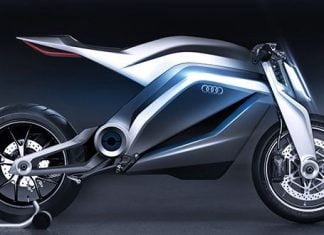Over the past few years, the motorcycle industry has transformed significantly. We live in an age where it is becoming more than possible to phase out gasoline-powered motorcycles while paving the way for their electric counterparts.
This is due to a combination of factors, such as concerns about the environment, technological advancements, and the increasing demand for transportation solutions that are both efficient and sustainable.
In this guide, we will examine the shift from gasoline to electric motorcycles. We’ll also discuss in more detail the environmental concerns and technological advancements that are driving this shift.
Let’s dive right in and get started.
The Impact on the Motorcycle Industry
In an age where it’s a mobile diesel mechanic VS a regular diesel mechanic, the motorcycle industry is experiencing an impact like nothing else. Manufacturers, mechanics, and consumers are all looking to adapt to the new technology practices that come along with the emerging electric motorcycles on the market.
The mechanics are also jobs that will take them beyond their knowledge of traditional internal combustion engines. They are challenging themselves to know more about electric powertrains, battery systems, and all other aspects pertaining to them.
Those looking to pursue a career in this evolving field should consider educational programs that cover not only traditional vehicle technologies but also electric ones. This will equip them with the knowledge and practical know-how to help them understand what they need to do to make repairs or correct any issues with motorcycles, whether they are gas-powered or electric.
Environmental Concerns and Emission Regulations
One of the primary factors that have fueled this shift from gasoline to electric motorcycles is environmental issues and the increased awareness of them. It’s no secret that gasoline-powered motorcycles can emit carbon dioxide, nitrogen oxides, and similar matters labeled as harmful pollutants.
With this in mind, these are responsible for air pollution and the more significant problem of climate change.
Thus, nations worldwide are implementing stricter environmental regulations to curb the issue. In 2020, the European Union’s Euro 5 emission standards will be implemented, which will also cover motorcycle emissions.
As a result, manufacturers were obligated to adopt cleaner technologies and create electric motorcycles featuring various solutions, such as zero tailpipe emissions and an overall reduction of environmental impact.
At the same time, it’s also important to make sure that safety is also addressed. Just because a bike is safe for the environment, doesn’t mean it’s automatically safe for operators. So be sure to take a look at these safety tips before you ride.
Technological Advancements in Electric Motorcycles
Battery technology and electric powertrains have played a critical role in ensuring electric motorcycles have become the best alternative to their gasoline-powered counterparts. Today’s electric motorcycles feature plenty of improvements across the board, such as range, charging infrastructure, and overall performance, all of which can be excellent elements for consumers to look at when looking for a new electric motorcycle.
The battery technology used in these motorcycles is lithium-ion batteries. The reason for this battery, in particular, is because it’s known for its long lifespan as well as its high energy density. The additional advancements in battery management systems and chemistry have also provided the added benefits of shorter charging times and increased range.
Today, the newer electric motorcycles will have more range compared to gasoline-powered cars of the past.
Nonetheless, the performance will be greatly enhanced when you compare the two different types of bikes. Electric motorcycles have instant torque and allow you to accelerate rapidly while providing an excellent and smooth riding experience. With electric drivetrains, there are fewer moving parts and lower maintenance compared to gas-powered bikes.
Finally, the reliability factor will help customers make the best decision possible when choosing between electric and gas-powered motorcycles. Better reliability is possible with electric motorcycles because they can start and move around whenever needed, as opposed to their gas-powered counterparts, where starting them up can be a challenge at times.
Final Thoughts
The competition between gasoline and electric motorcycles is fierce in today’s market. However, it looks like the aim is for electric motorcycles to gain more market share as the years go by.
Even though some people may not prefer electric motorcycles, there are a large number of consumers who are looking to get the best ride while reducing their environmental impact – making electric motorcycles one of the more appealing options to date.


















